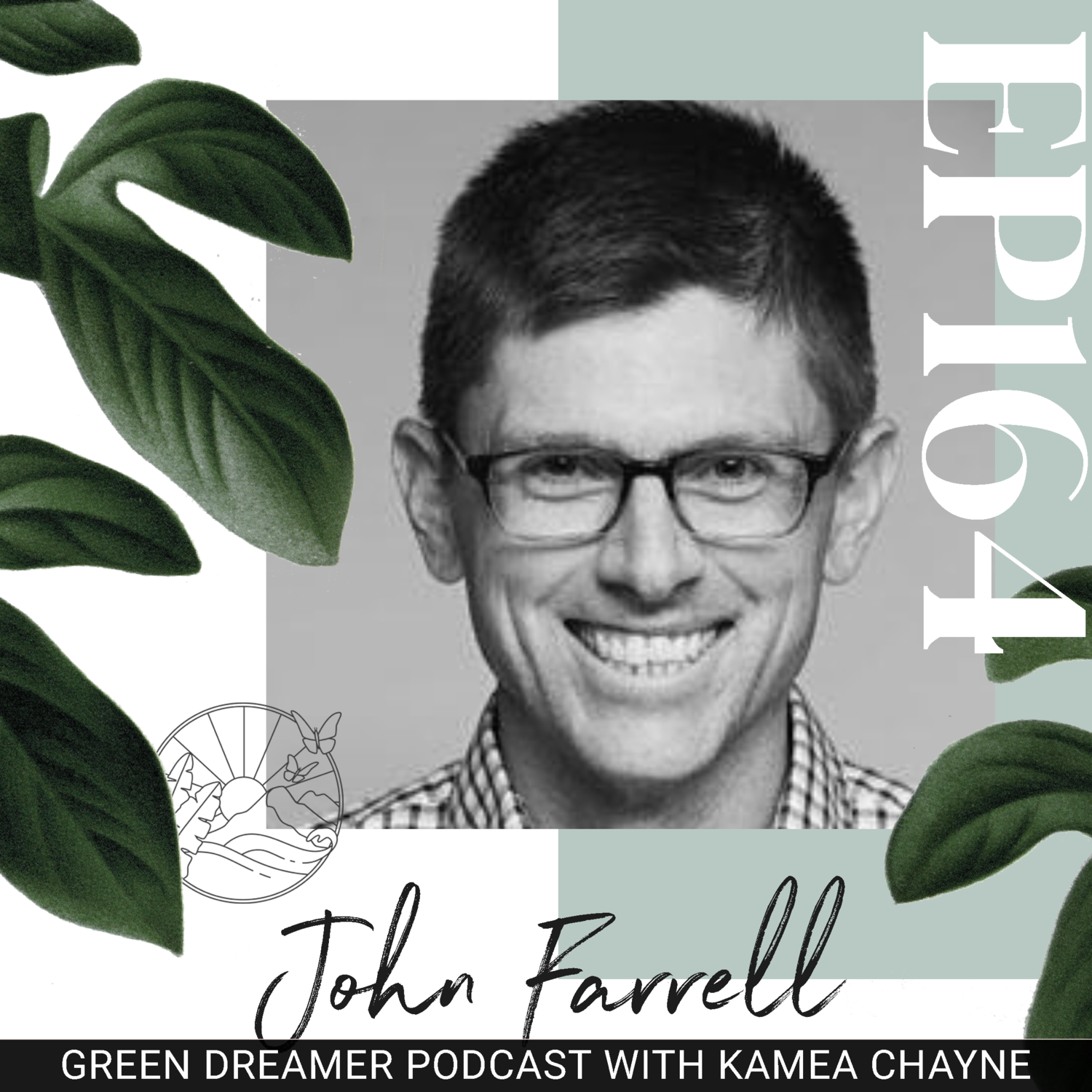Why we need to decentralize our power grids for energy democracy (interview with john farrell of institute for local self-reliance)
Known as the guru of distributed energy, John Farrell (@johnffarrell) is the co-director of the Institute for Local Self-Reliance (@ilsr) and directs its work on energy democracy. He's best known for his vivid illustrations of the economic and environmental benefits of local ownership of decentralized renewable energy.
In this podcast episode, John sheds light on how we came to develop and rely on our current centralized, top-down power grids today mostly driven by utility monopolies; why we need to not only shift towards renewable energy but also work towards energy democracy and the decentralization of power sources; why some utility companies may at the same time be supporting solar energy while lobbying against it; and more.
To start, get a glimpse below into the conversation between John and Green Dreamer Podcast's host, Kamea Chayne.
“We are now able to generate electricity at a much smaller scale affordably. Generating electricity on my own rooftop can be affordable compared to the price of buying electricity from my utility company.”
If you feel inspired by this episode, please consider donating a gift of support of any amount today!
This is a conversation on Green Dreamer with Kamea Chayne, a podcast and multimedia journal illuminating our paths towards ecological balance, intersectional sustainability, and true abundance and wellness for all. This preview has been edited for clarity. Subscribe to Green Dreamer Podcast on iTunes, Spotify, Stitcher, or any podcast app to stay informed and updated on our latest episodes.
On why we need a redesign of the U.S. power grid:
"What's fascinating now—and this is something that has been happening now for at least the past couple of decades—is that we're becoming more efficient energy users and so we're using less and less energy per person.
Also, we are now able to generate electricity at a much smaller scale affordably. Generating electricity on my own rooftop can be affordable compared to the price of buying electricity from my utility company.
So, we're returning to the point where now, at the neighborhood level, we can make energy decisions again in the way that we could one-hundred years ago.
Yet ironically, we still have all of the power structure and all of the structure of the market built around this monopoly model where we have giant corporations making energy decisions on a regional scale or state-wide scale when the decision-making power and the technology really lends itself to the neighborhood level."
On how we can take back our agency in deciding where we source our energy:
"Collectively, as Americans, we spend $360 billion per year on electricity. We have an opportunity to fundamentally change who we send that money to.
We don't have to give it all to these big corporations that generate electricity for a profit, but we have a way to reduce how much we use ourselves, such as using LED lightbulbs, improving our energy efficiency, and investing in solar panels that we can put on our own roofs or in a community solar array.
We can keep more of that money in our own pockets and in our communities’ pockets in a way that we haven't been able to a generation or two ago.”
On the economic impact of decentralized energy ownership:
"There are $360 billion a year that we spend on electricity and a lot of that could be redirected into the community.
Even just a one-megawatt solar array serves about two-hundred homes and generates several million dollars in electricity revenue over its lifetime, which is money that could be redirected into the pockets of ordinary residents and ordinary businesses in the community.
What we found in a lot of our research is that the more money that's in the local community and the more locally owned businesses that there are, the more those dollars continue to circulate locally.
The more money I have as a Minneapolis resident, the more likely I am to spend money in Minneapolis, and the better the local economy for everyone."
On how we can utilize policy and collective action to reclaim our decision power of our energy sources:
"We still have power but we're up against this big powerful incumbent and we have to fight to elect the right people.
We have to do what the folks in Virginia did and ask their legislators to pledge not to take money from utility companies that they are responsible for regulating, and we have to push them to adopt policies that would give us more of the power."
Final words of wisdom:
“Don't forget to have fun!
This work can seem really challenging, and yet there are ways to take joy in working on it with other people, and to have a few laughs once in a while.”

